It’s undeniable that sustainability has become a buzzword. However, at Now You Try, we embrace that buzz. In our view, sustainability in it’s truest form isn’t about reforming corporate behavior, sweeping energy programs, or government intervention. Don’t get us wrong; those are noble goals in many cases. For us, however, it’s about being self-sufficient and producing as little waste as you reasonably can. “Wanton waste” is a term often associated with hunting, and most times the fish & game authorities using that language do so in order to discourage (or outright disallow) the practice of killing an animal, taking nothing from it, and ditching the carcass. Using everything you can to some practical or beneficial end is truly at the heart of being an outdoorsman. Beyond wanton waste, things like creating pollution, damaging the wilderness, and misusing/abusing natural resources are similarly unsustainable behaviors. A sustainable hunter aims to reduce their impact on the environment by increasing their personal responsibility and workload; that way we have wild spaces and the bounty of our lands and waters for generations to come.
1. Buy Less, Do More
One of the easiest “wins” a hunter can claim for sustainability is the knowledge that they are removing themselves and their family from the factory farming cycle. By providing your own meat, you are reducing your footprint and contributing to a social movement toward sustainable meat practices. Many of us find ourselves asking if we can do more, however. Beyond just singing the praises of our results, then, let’s more closely examine the means by which we achieve them.
The amount of gear and accessories available to the modern hunter is simply staggering. While some of it can certainly be deemed “essential,” multiples more of can be chalked up to the ingenious product development meeting slick and effective marketing. The insecurity of hunters and the fear of not “getting it done” are the driving force behind billions of dollars spent on hunting paraphernalia ever year.
When we started the podcast in 2017, our conversations began to converge into a set of core values. The more we tried to distill these down, we realized that four words actually did the trick:

Buy less. Do more. What our realization sprang from was the discovery (through repetition, study, and stubbornness) that many of the ‘must-have’ items in hunting and fishing could be replaced with effort and creativity. There is an added bonus to using these attributes instead of opening your pocketbook, as well. You learn more. You become more useful. You become more capable. You end up in less situations where you don’t have a clue what to do next.
There is a more practical side to this esoteric philosophy of self-improvement through self-sufficiency. The hunting industry uses a great deal of resources in the form of plastics, metals, and chemicals. Many of these are non-renewable and harmful the environment. Quite often, these items are for nothing more than convenience or a perceived edge on your chosen quarry (or other hunters, if we’re being honest).
- High-end camo can be replaced with proper concealment and movement.
- Plastic fishing lures can be replaced with the right natural bait, or lures made with animal and plant components.
- Pounds upon pounds of single-use hiking and camping supplies (i.e., snack bars, coffee singles) can be replaced with thoughtful preparation.
- Box blinds and feeders can be replaced with natural blinds, food plots, or long hikes with carried bait.
These are a few among many, many ways to buy less and do more. Your greatest gift as a predator is that organ in your skull and it’s ability to plan ahead, think in the abstract, and physically shape the environment to your whims. Let’s invest in those tools instead of the latest and greatest technology money can buy.
2. Take Two
I’m going to work from the assumption that if you are reading this article, you’re not the type to litter. A love of the outdoors, a true love of it, creates an ethical and moral line that you simply cannot cross when it comes to what you do with your trash. I’m further going to assume that your love of the outdoors motivates you to do things to improve the spaces we use to enjoy it.
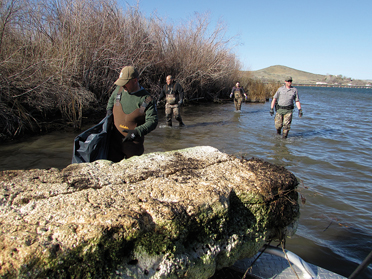
Let’s keep that assumption train rolling down the line and say that, like many of us, you have all of these feelings and convictions but you often lack the time or resources to do anything about it on a grand scale. A park-wide trash pick up, or cleaning up old lines and lures from every bank of the nearest lake are awesome in theory. If we are being honest with ourselves, though, busy lives with jobs, bills, and kids make that a logistical impossibility 99 times out of 100. Luckily, we are all about small-scale and the achievable. That’s why the motto amongst everyone at Now You Try is “take two.”
‘Take two’ is as simple as it gets. Whatever land you find yourself hunting on, public or private, your goal is to walk out with two handfuls of litter. Would we prefer it was two garbage bags full? Sure, but two handfuls doesn’t rely on you remembering to bring anything with you. No matter your situation or loadout, you should be able to get back to your vehicle with two handfuls of trash. Imagine the impact if even ten percent of licensed hunters did this every time they went into the field to scout or hunt.
3. Hoof It
This hits on a lot of core values for us. Part of sustainability is having a body that is fit and conditioned to do what you ask of it. We aren’t talking professional athlete levels here, but enough to do what needs to be done in the field without putting yourself or others in danger.

One of the most immediate and impactful things you can do as a hunter is quite honestly one of the most simple as well. Ditch the trucks and ATVs, and get to your hunting area under your own power. Ask any physician or fitness professional what their first recommendation for exercise is when dealing with someone that is overweight, out of condition, or recovering from injury. Take a walk. It’s usually that simple. Walking is one of the most basic human activities, and our body is marvelously evolved to travel long distances on two legs. Once you can cover some ground without getting too exhausted, you open the door to all kinds of more rigorous and high-impact exercise.
Beyond just the health benefits, by conditioning yourself to travel under your own power in the outdoors, you are sidestepping a bunch of potential sources of waste. You are also reducing your impact on vegetation, wildlife, water and air quality when you choose to take combustion engines out of the picture.

Perhaps the greatest benefit of going on foot is how much more connected you feel to the land you’re on. Everything slows down, your view gets more breadth and depth. You can get in touch with sound and smell in a way that you can’t with motorized transport.
4. Give Back
The longer we hunt, the more success we tend to have in filling our freezer with game meat. While having that freezer stocked to the brim is indeed a beautiful thing, the last thing we want is any of that to get forgotten so long that it goes to waste. Game animals are a precious resource, and not one we should take haphazardly if we don’t intend to use it. So what to do if you are realistically stocked well beyond what you’re going to use in the near future?
Give it away.

This can be as simple as giving your family, friends, or neighbors cuts of meat, ground meat, sausages, snack sticks, or any other of the countless preparations we all know and love. Giving food (especially food you have personally harvested) is one of the most universal expressions of love, care, and friendship. The feeling you get from giving away your hard-earned game meat is hard to describe if you haven’t experienced it firsthand. It truly amplifies the satisfaction of being a provider to another level entirely.

Another fantastic option is using a program like Hunters for the Hungry. Many states have chapters, and they often work with processors so that high-quality game meat (primarily venison) can find its way to those in need. You can also contact local food pantries, churches, and other charitable organizations to find good uses for the meat you wish to share. The greatest and most impactful good most of us can do is in our own communities. You may not be able to solve the world’s problems with hunting, but you could keep a family from going hungry in your town or city. This is how the world is made better – small-scale, significant efforts in our own community have a pond-ripple effect that eventually become broader social movements. Express your love and care to those close to you with food, and you’ll sleep well, guaranteed. Plus, you might get the added effect of getting someone hooked on game meat and creating new hunters.
5. Pass it On
We have talked at great length on the podcast about what hunting, fishing, and spending time in the outdoors in general can do for your development as a person. These activities all require a degree of self-sufficiency, study, and grit. It’s no mystery that these in combination tend to make better people. As it turns out, it makes better neighbors, citizens, and stewards of the earth too. This begs the question: Why don’t we make more of these kind of people?

We can! By sharing your love of the outdoors, wildlife, and wild spaces, you can ensure a future for hunters. This can be as simple as taking your daughters and sons hunting and teaching them the skills to be self-sufficient and capable; taking a friend on his first dove hunt; volunteering to clean up parks. It can even be something as simple as a conversation with someone who doesn’t yet understand how we can kill what we profess to love so much.
While “the kill” is always central to the culture of hunting, you could argue that emphasizing that aspect has been detrimental to hunting in the age of social media. Is this due to a lack of understanding from those on the outside looking in? Sure, quite often that’s the case. However, many of those same people could be more readily swayed by content that shows hunters as the primary stewards of conservation. By communicating our love of the lands and waters from which we draw our favorite resource, we make a stronger case to non-hunters that there may be something in it for them after all. Say it loud, and say it often: Hunting is conservation. Hunting is sustainability.

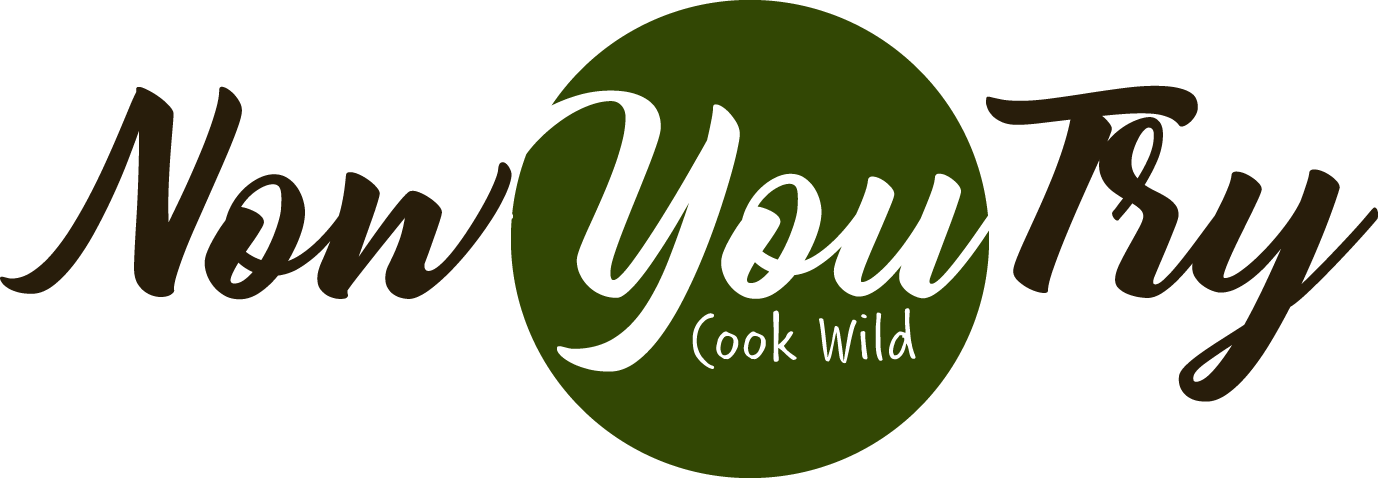

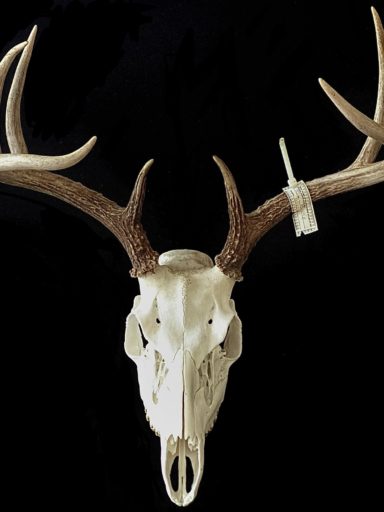
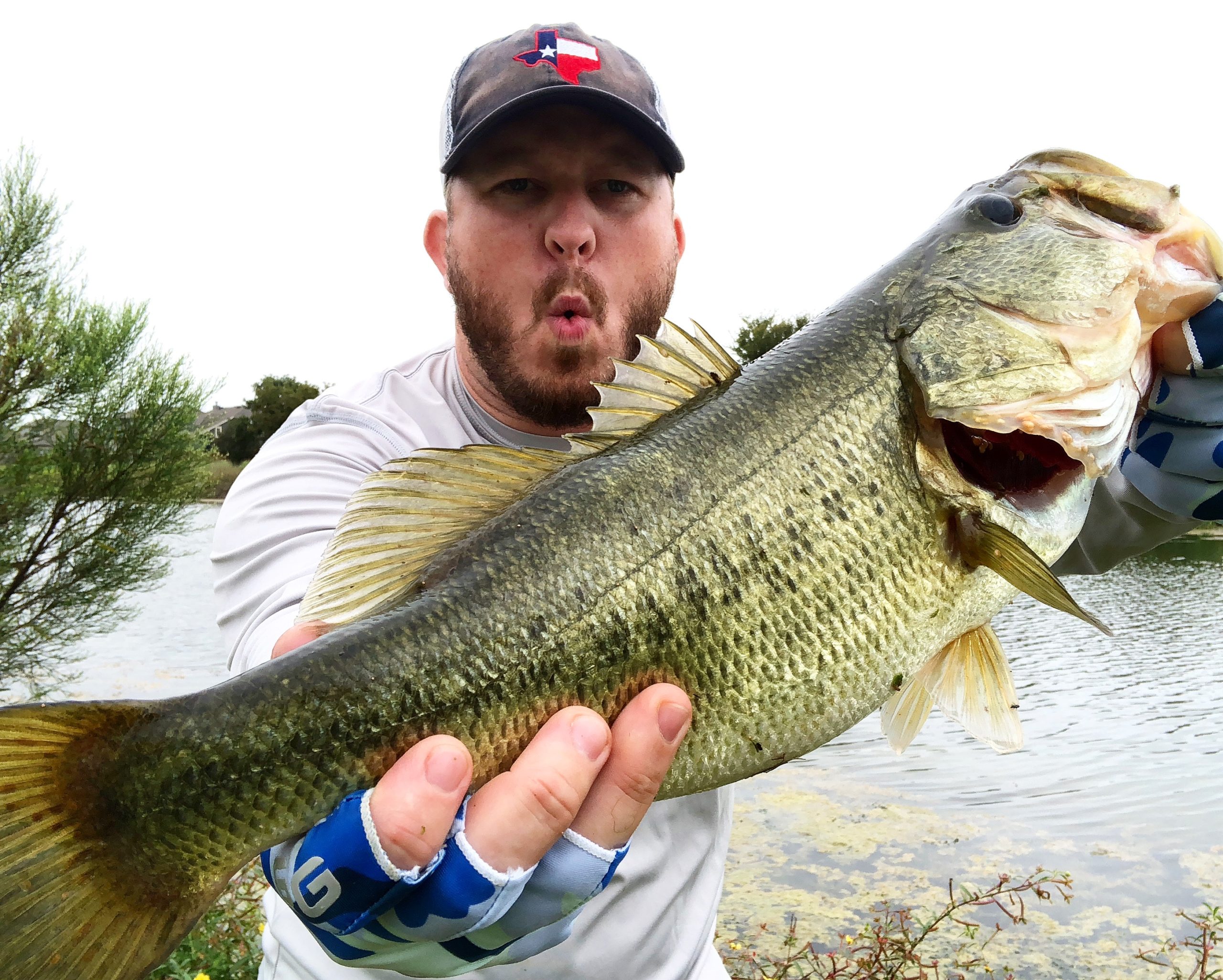
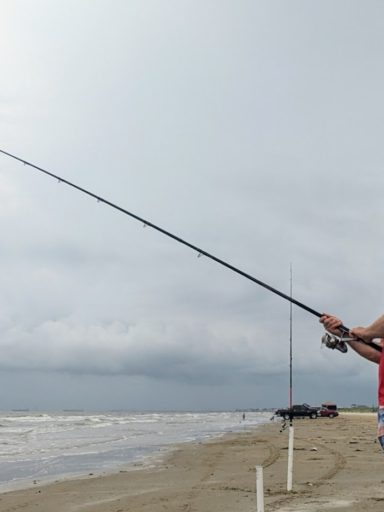
Great points made here- things that all hunters consider to lessen their impact. I would also suggest the voluntary move away from lead ammunition to limit impact to scavenging species. Eagles, condors, ravens, and a host of other raptor species have documented mortalities from gut piles and unrecovered game they find, so limiting this chance of exposure can be the hunter’s next steps toward ideal Fair Chase. See what works with your firearms and take steps to take only the animals you’re aiming at.
Very well-said.